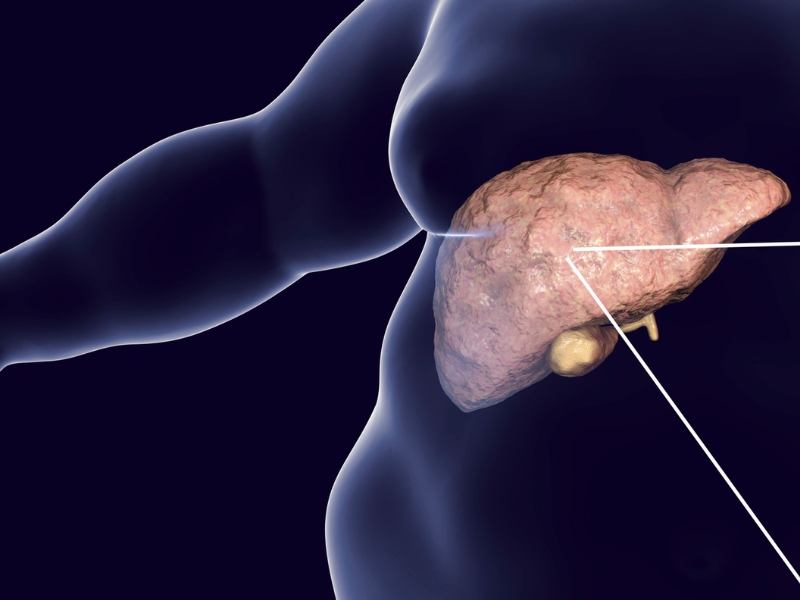
Long-term adjunctive treatment of chronic heart failure patients with Coenzyme Q10 supplements is safe and has improved the patients’ symptoms and has reduced the patients’ risk of major adverse cardiovascular events. Now, researchers have begun to investigate whether adjunctive treatment with Coenzyme Q10 reduces chronic low-grade inflammation.
Chronic, low-grade, systemic inflammation is common in many diseases: cardiovascular disease, metabolic syndrome, non-alcoholic fatty liver disease, obesity, type-2 diabetes [Zhai 2017]. Anti-inflammatory drugs give modest improvement at best and are associated with long-term adverse effects [Esser 2015]. Some researchers have begun to investigate whether Coenzyme Q10 as an adjunctive treatment has anti-inflammatory health benefits.
The results of the KiSel-10 study have shown that daily supplementation with 200 milligrams of Coenzyme Q10 and 200 micrograms of SelenoPrecise® selenium significantly reduced the levels of sP-selectin and hs-CRP, both markers for inflammation, as compared to placebo supplementation.
The combination of Coenzyme Q10 and selenium significantly reduced the risk of cardiovascular death in healthy elderly citizens aged 70 – 88 years [Alehagen 2015].
Now, a recent meta-analysis of the research literature up to February 2016 has shown that Coenzyme Q10 partially improves the process of reducing systemic inflammation [Zhai 2017].
Meta-analysis of Coenzyme Q10 and inflammation
The meta-analysis carried out by Dr. Zhai and his colleagues examined 9 randomized, double-blinded, controlled trials that enrolled 428 study participants. The researchers excluded studies that used Coenzyme Q10 in combination with other drugs or nutritional supplements. The results from the 9 studies were published in English in the period 2009-2015.
Duration and dosage of the Coenzyme Q10 supplementation
The analyzed studies ran from 8 to 12 weeks. The dosage used in the studies ranged from 100 to 500 milligrams daily. All the studies were placebo-controlled studies.
Outcome variables in the Coenzyme Q10 and inflammation study
The researchers compiled and analyzed data showing the effect of the Coenzyme Q10 supplementation on the following outcome variables:
- Serum or plasma Coenzyme Q10 concentrations
- Interleukin-6 (IL-6) concentrations
- Tumor necrosis factor-alpha (TNF-α) concentrations
- C-reactive protein (C-RP) concentrations
Increased IL-6, TNF- α, and C-RP levels are markers for inflammation and have been associated with increased risk of insulin resistance, type-2 diabetes, and heart disease [Zhai 2017].
Results of the Coenzyme Q10 supplementation
- Coenzyme Q10 supplementation significantly increased serum or plasma Coenzyme Q10 concentrations.
- Coenzyme Q10 supplementation was associated with significantly reduced TNF- α concentrations.
In the aggregated data of the 9 studies, Coenzyme Q10 supplementation did not significantly differ from the placebo supplementation in the effect on IL-6 and C-RP levels.
No side effects associated with the Coenzyme Q10 supplements
In 5 of the 9 studies, the authors included a report on side effects of the supplementation. In only one study was there any side effect noted in the Coenzyme Q10 treatment group: two individuals reported redness of skin and itchiness. In other words, in 9 studies enrolling 428 participants, the Coenzyme Q10 supplement was just as safe and well-tolerated as the placebo supplement was [Zhai 2017].
Conclusions from the meta-analysis of Coenzyme Q10 and inflammation studies
The authors of the meta-analysis wrote that Coenzyme Q10 supplementation may partly improve the process of reducing systemic inflammation [Zhai 2017].
They called for further investigation of the effects of Coenzyme Q10 on systemic inflammation, in particular with respect to differences in the age, sex, ethnic background, body mass index, lipoprotein concentrations, and health status of the study participants. Most of the participants in the Zhai meta-analysis were of Asian origin [Zhai 2017].
Anti-inflammatory mechanisms of Coenzyme Q10
The mechanisms by which Coenzyme Q10 has an anti-inflammatory effect are not known. The authors speculated that Coenzyme Q10’s anti-inflammatory effects may be the result of one of two possible mechanisms:
- Coenzyme Q10 might play a role in decreasing the production of pro-inflammatory cytokines (= substances secreted by the immune system) [Schmelzer 2008].
- Coenzyme Q10 might play a role in increasing the levels of adiponectin (= proteins involved in the breakdown of fatty acids and in the regulation of glucose levels), which might indirectly lead to a reduction in TNF- α levels [Bagheri Nesami 2015].
Closing comments on Coenzyme Q10 and chronic inflammation
Coenzyme Q10 is an essential redox molecule that plays two primary roles in the body — energy production and antioxidative defense — as well as some secondary roles such as improvement of endothelial function. Our bodies make Coenzyme Q10, but our bodies make less and less Coenzyme Q10 as we mature and age. Certain medications such as statins inhibit our bodies’ ability to make Coenzyme Q10. Consequently, Coenzyme Q10 supplementation is necessary for most adults in middle age and in the senior years.
We need Coenzyme Q10 in its oxidized form to produce energy for cell growth and functioning. In addition, we need Coenzyme Q10 in its reduced form to act as an antioxidant protecting the cells against damage caused by harmful free radicals.
Randomized controlled trials have shown that Coenzyme Q10 supplements significantly improve the survival and symptoms of chronic heart failure patients [Mortensen 2014], help to maintain good heart function in elderly people [Alehagen 2015], and improve many of the symptoms of Gulf War Illness [Golomb 2014].
Fortunately, Coenzyme Q10 supplements that have a well-documented formulation are safe, effective, and affordable.
Read our key article about CoQ10 and cardiovascular health in elderly people
Sources
Alehagen, U., Lindahl, T. L., Aaseth, J., Svensson, E., & Johansson, P. (2015). Levels of sP-selectin and hs-CRP Decrease with Dietary Intervention with Selenium and Coenzyme Q10 Combined: A Secondary Analysis of a Randomized Clinical Trial. Plos One, 10(9), e0137680. doi:10.1371/journal.pone.0137680.
Alehagen, U., Aaseth, J., & Johansson, P. (2015). Reduced Cardiovascular Mortality 10 Years after Supplementation with Selenium and Coenzyme Q10 for Four Years: Follow-Up Results of a Prospective Randomized Double-Blind Placebo-Controlled Trial in Elderly Citizens. Plos One, 10(12), e0141641. doi:10.1371/journal.pone.0141641.
Bagheri Nesami, N., Mozaffari-Khosravi, H., Najarzadeh, A., & Salehifar, E. (2015). The Effect of Coenzyme Q10 Supplementation on Pro-Inflammatory Factors and Adiponectin in Mildly Hypertensive Patients: A Randomized, Double-Blind, Placebo-Controlled Trial. International Journal for Vitamin and Nutrition Research, 85(3-4), 156-164.
Esser, N., Paquot, N., & Scheen, A. J. (2015). Anti-inflammatory agents to treat or prevent type 2 diabetes, metabolic syndrome and cardiovascular disease. Expert Opinion on Investigational Drugs, 24(3), 283-307.
Golomb, B. A., Allison, M., Koperski, S., Koslik, H. J., Devaraj, S., & Ritchie, J. B. (2014). Coenzyme Q10 benefits symptoms in Gulf War veterans: results of a randomized double-blind study. Neural Computation, 26(11), 2594-2651.
Mortensen, S. A., Rosenfeldt, F., Kumar, A., Dolliner, P., Filipiak, K. J., Pella, D., & Littarru, G. P. (2014). The effect of coenzyme Q10 on morbidity and mortality in chronic heart failure: results from Q-SYMBIO: a randomized double-blind trial. JACC. Heart Failure, 2(6), 641-649.
Schmelzer, C., Lindner, I., Rimbach, G., Niklowitz, P., Menke, T., & Döring, F. (2008). Functions of coenzyme Q10 in inflammation and gene expression. Biofactors (Oxford, England), 32(1-4), 179-183.
Zhai, J., Bo, Y., Lu, Y., Liu, C., & Zhang, L. (2017). Effects of Coenzyme Q10 on Markers of Inflammation: A Systematic Review and Meta-Analysis. Plos One, 12(1), e0170172. doi:10.1371/journal.pone.0170172.
Disclaimer: The information presented in this article is not intended as medical advice and should be regarded as such.








Leave A Comment